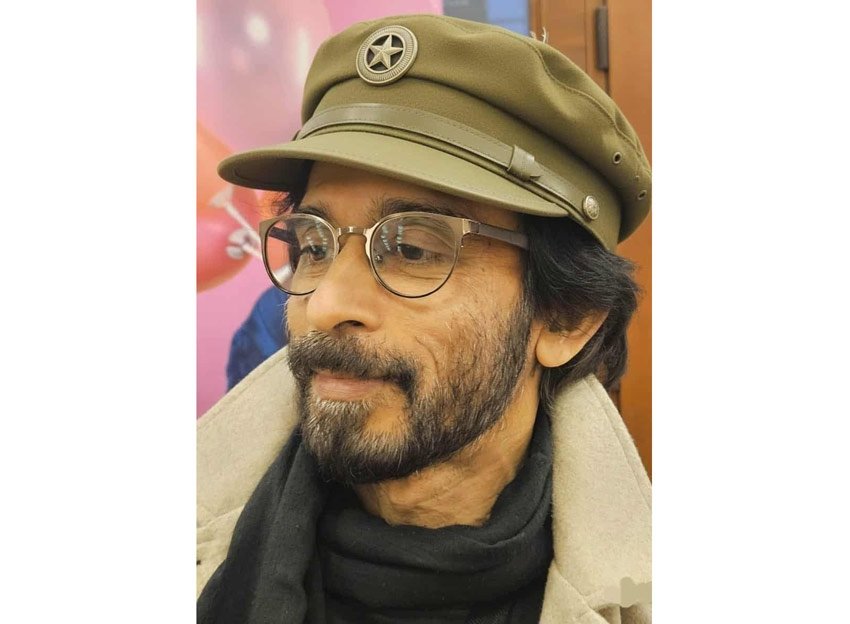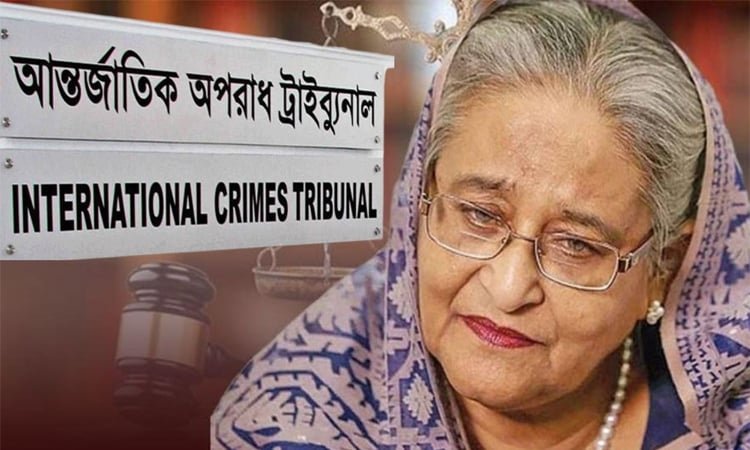Published: 10:28 PM, 19 November 2025 Last Update: 10:41 PM, 19 November 2025
Prime Minister Sheikh Hasina and the Trial That Defies Justice

KN Ahad
17 November 2025 will be remembered not only as a day of national shock, but also as one of the clearest examples of how justice can be distorted when politics replaces due process. On this day, Prime Minister Sheikh Hasina and Home Minister Asaduzzaman Khan Kamal were sentenced to death by a tribunal widely criticized for procedural flaws. While this injustice affected both individuals, the focus of this statement is on Prime Minister Sheikh Hasina, whose legitimate leadership and the integrity of her office are most deeply challenged.
The sentencing of Prime Minister Sheikh Hasina — in a trial conducted without her presence, without her chosen counsel, and under a tribunal reconstructed by an unelected authority — is not a verdict rooted in justice. It is a decision rooted in haste, politics, and profound procedural flaws.
I feel compelled to speak, because silence in the face of injustice becomes complicity.
International Context
International media and human rights organizations have highlighted serious procedural flaws in these trials. Both Prime Minister Sheikh Hasina and Home Minister Asaduzzaman Khan Kamal were tried in absentia, with limited opportunity to mount a defense, raising serious concerns about fairness and due process. Amnesty International and Human Rights Watch have described the verdicts as unjust and incompatible with international standards.
Why This Verdict Cannot Be Accepted
After examining the facts, the reactions of international legal experts, and the manner in which this tribunal operated, several indisputable issues arise.

The International Crimes Tribunal, Dhaka sentenced former Bangladesh Prime Minister Sheikh Hasina to a death penalty through a verdict issued on 17 November 2025 over crimes against humanity and human rights violations during the July Uprising in 2024 through which the immediate past government was overthrown. Agencies
1. Prime Minister Sheikh Hasina was denied the most basic rights of a fair trial.
No accused — let alone a sitting or legitimately elected Prime Minister — should be tried:
· in absentia,
· under a rushed timeline,
· with limited defense opportunities.
This violates the fundamentals of justice that every nation must uphold.
2. The tribunal itself lacks legitimacy.
The court used to deliver this verdict was:
· reconstituted,
· restructured, and
· granted expanded powers
by a government that never received a democratic mandate. When justice is delivered by an authority that has not been elected, the outcome becomes politically suspect.
3. The death penalty only deepens the injustice.
At a time when the world is abandoning capital punishment, Bangladesh has imposed it in a trial that fails international standards. This is unacceptable — morally, ethically, and legally.
The Narrative That This Verdict Reflects the People’s Will Is False
I reject the claim that the verdict reflects the will of all students and the people, as some have suggested. Bangladesh is not a monolithic voice, and many, like myself, see this judgment as part of a carefully engineered political transition rooted in the turbulence of July 2024 — a turbulence many now believe was manipulated, misrepresented, or misused.
We cannot allow a moment of national vulnerability to justify a permanent national injustice.
If There Must Be a Trial, It Must Be a Fair One
If serious allegations exist, then let them be examined. If accountability is required, let it happen transparently. If justice is to be delivered, let it be real.
This means:
1. A democratic government must be in place.
2. Prime Minister Sheikh Hasina must be present and represented by counsel she chooses.
3. The tribunal must be independent, not politically engineered.
4. The process must meet international due-process standards.
Until these conditions are met, this verdict holds no legitimacy in my eyes — and should not hold legitimacy in the eyes of the nation or the world.
An Insult to Our History and Liberation Legacy
This verdict feels like an attack not just on Prime Minister Sheikh Hasina but on:
• the ideals of the Liberation War,
• the dignity of our nation,
• the sacrifices of 1971, and
• the democratic aspirations of Bangladesh.
I believe it is our moral duty to defend these values — not for any political party, but for the country we love.
My Final Word
This is not merely a legal matter. This is a question of who we are as a nation.
Do we stand for fairness, justice, and democratic accountability? Or do we allow political expediency to rewrite our history and silence our leaders?
As a Bangladeshi, as someone who cherishes our national identity, and as a believer in justice:
I cannot — and will not — accept this verdict.
K N Ahad is an author and columnist based in Ukraine. Views expressed in this article solely belong to the writer.
1. Prime Minister Sheikh Hasina was denied the most basic rights of a fair trial.
No accused — let alone a sitting or legitimately elected Prime Minister — should be tried:
· in absentia,
· under a rushed timeline,
· with limited defense opportunities.
This violates the fundamentals of justice that every nation must uphold.
2. The tribunal itself lacks legitimacy.
The court used to deliver this verdict was:
· reconstituted,
· restructured, and
· granted expanded powers
by a government that never received a democratic mandate. When justice is delivered by an authority that has not been elected, the outcome becomes politically suspect.
3. The death penalty only deepens the injustice.
At a time when the world is abandoning capital punishment, Bangladesh has imposed it in a trial that fails international standards. This is unacceptable — morally, ethically, and legally.
The Narrative That This Verdict Reflects the People’s Will Is False
I reject the claim that the verdict reflects the will of all students and the people, as some have suggested. Bangladesh is not a monolithic voice, and many, like myself, see this judgment as part of a carefully engineered political transition rooted in the turbulence of July 2024 — a turbulence many now believe was manipulated, misrepresented, or misused.
We cannot allow a moment of national vulnerability to justify a permanent national injustice.
If There Must Be a Trial, It Must Be a Fair One
If serious allegations exist, then let them be examined. If accountability is required, let it happen transparently. If justice is to be delivered, let it be real.
This means:
1. A democratic government must be in place.
2. Prime Minister Sheikh Hasina must be present and represented by counsel she chooses.
3. The tribunal must be independent, not politically engineered.
4. The process must meet international due-process standards.
Until these conditions are met, this verdict holds no legitimacy in my eyes — and should not hold legitimacy in the eyes of the nation or the world.
An Insult to Our History and Liberation Legacy
This verdict feels like an attack not just on Prime Minister Sheikh Hasina but on:
• the ideals of the Liberation War,
• the dignity of our nation,
• the sacrifices of 1971, and
• the democratic aspirations of Bangladesh.
I believe it is our moral duty to defend these values — not for any political party, but for the country we love.
My Final Word
This is not merely a legal matter. This is a question of who we are as a nation.
Do we stand for fairness, justice, and democratic accountability? Or do we allow political expediency to rewrite our history and silence our leaders?
As a Bangladeshi, as someone who cherishes our national identity, and as a believer in justice:
I cannot — and will not — accept this verdict.
K N Ahad is an author and columnist based in Ukraine. Views expressed in this article solely belong to the writer.



